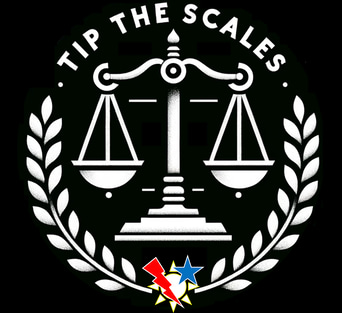Navigating Crossroads in Army Life: 10 Key Decision Points
Embarking on a journey with the Army is not just about serving your country; it's a path filled with critical decisions that shape both your military career and personal growth. In this post, we reflect on our time in the Army, highlighting ten pivotal decision points that can significantly influence your journey. From the initial commitment to facing leadership challenges, each decision carries profound implications for career trajectory and life lessons.
1/26/20243 min read


Embarking on a military career as an Army officer is a thrilling journey, punctuated by critical decisions that shape not just your professional trajectory, but also your personal growth. In this exploration, I recount my career in the Army marked by ten pivotal decision points, each a stepping stone that carved my path in this dynamic and ever-evolving landscape. Additionally, see our military mentors who can shed light on each of these decisions through one-on-one discussions with you.
1. ROTC & West Point Branching. The journey begins with choosing your branch after graduating from ROTC or West Point. This pivotal decision sets your military career's trajectory, requiring a deep understanding of each branch's demands and how they align with your skills, interests, and aspirations. Whether it's Infantry, Armor, Intelligence, or another field, this choice lays the foundation for your military path.
2. IBOLC Graduation → Pre-Ranger School. The transition from IBOLC graduation to contemplating Ranger School is a critical moment. Deciding to pursue this rigorous training involves weighing your physical and mental readiness against the prestige and opportunities it offers. This choice is a testament to your commitment and a potential gateway to elite units and leadership roles.
3. Ranger School Graduation → 1st PCS Complete. After Ranger School, your first Permanent Change of Station (PCS) is a significant milestone. It’s a time to apply your advanced training, adapt to new environments, and make impactful decisions about your career direction. This phase is crucial for practical experience and setting the stage for future growth.
4. 1st PLT Complete → XO Complete. Moving from your first Platoon Leader role to an Executive Officer position involves a shift in responsibilities and perspective. This period is about expanding your leadership skills, understanding larger operational pictures, and preparing for more complex challenges in your Army career.
5. Ranger Regiment & SFAS / Q-Course. Deciding to join the Ranger Regiment or undertake the Special Forces Assessment and Selection (SFAS) and Qualification Course (Q-Course) is a career-defining move. It signifies a commitment to joining the ranks of the Army's most elite, where specialized skills and resilience are paramount.
6. CCC & JO REFRAD Complete. The completion of the Captain's Career Course (CCC) and the decision at the Junior Officer REFRAD mark a crucial juncture. This is a time for critical career evaluation — deciding whether to continue in active duty, transition to a reserve component, or pursue opportunities outside the Army.
7. Battalion/Brigade Staff Time. Serving on battalion or brigade staff offers broader insight into military operations and strategic planning. This phase is essential for developing a holistic understanding of the Army’s mission and your role in shaping it, setting the groundwork for future leadership roles.
8. Company Command Complete. Completing a company command is a hallmark of your leadership journey. Post-command, you face decisions about next steps in your career, whether pursuing higher command roles, additional training, or other opportunities to leverage your experience and skills.
9. BQ REFRAD → MBA, Hiring Our Heroes/CSP, Job Search. As you approach the end of your Basic Qualification period, the decision to pursue further education, engage in transition programs like Hiring Our Heroes, or embark on a civilian job search is crucial. This stage is about strategically positioning yourself for life after the Army.
10. Broadening Time. The broadening phase is an opportunity to diversify your military experience. Decisions here involve choosing assignments or roles that enhance your skill set and perspective, crucial for a well-rounded career and a successful transition to post-military life. This can involve selecting assignments such as international postings, inter-agency work, or fellowships.
Navigating these ten key decision points over your time in the Army shapes not only your career, but also personal growth. Each choice brings its unique set of challenges and opportunities, forging a path that is both rewarding and transformative! This journey is a testament to the dynamic and multifaceted nature of a career in the Army, offering a unique blend of leadership, resilience, and strategic thinking. For those embarking on or navigating their military career, these milestones offer valuable insights and guidance, illuminating the path to success and fulfillment in the honorable service of our nation.
